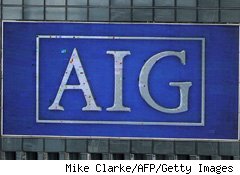 American International Group (AIG) has received a $1 billion commitment from Kuwait Investment Authority for AIA Group’s Hong Kong initial public offering, Reuters reported, citing an unnamed source. But the Kuwaiti sovereign wealth fund has forced AIG to lower the value of the Asian life insurance company.
American International Group (AIG) has received a $1 billion commitment from Kuwait Investment Authority for AIA Group’s Hong Kong initial public offering, Reuters reported, citing an unnamed source. But the Kuwaiti sovereign wealth fund has forced AIG to lower the value of the Asian life insurance company.
Originally, AIA was going to be sold to British insurer Prudential for $35.5 billion. Prudential later dropped the offer to $30.4 billion. But that plan fell through and AIG opted for an IPO of the Asian unit instead. The bailed-out insurer plans to sell about 50% of AIA, although the exact share to be sold will be determined today, Bloomberg’s sources added. AIA’s IPO is set to start on Tuesday, with shares expected to begin trading Oct. 29.
The Kuwaiti fund agreed to sign on as an investor only after the value of the IPO was set at between $30 billion and $32 billion, the added. AIG had planned to sell shares in AIA at a level that would value the company at $35 billion to $37 billion. Cornerstone investors agree to buy into an IPO before it prices to help build confidence in the offering, Reuters explained.
adsonar_placementId=1505951;adsonar_pid=1990767;adsonar_ps=-1;adsonar_zw=242;adsonar_zh=252;adsonar_jv=’ads.tw.adsonar.com’;
KIA is among the major global institutions that have signed up as cornerstone investors ahead of AIA’s roughly $15 billion IPO. Malaysia’s sovereign wealth fund, Khazanah, and a number of Hong Kong tycoons have also signed up for cornerstone stakes, according to the .
AIG, nearly 80% owned by the U.S. government, is disposing of assets to repay the taxpayer bailout of $182.3 billion. Last week, Prudential (PRU) agreed to pay $4.8 billion for two of AIG’s Japanese life insurance units. AIG also announced last week it had entered into an agreement with the Treasury Department and the Federal Reserve Bank of New York about how it will repay its obligations to the U.S. government. The approved plan involves the Treasury converting $49 billion preferred shares into common stock so that the government can begin to wind down its majority stake.


Leave a Reply